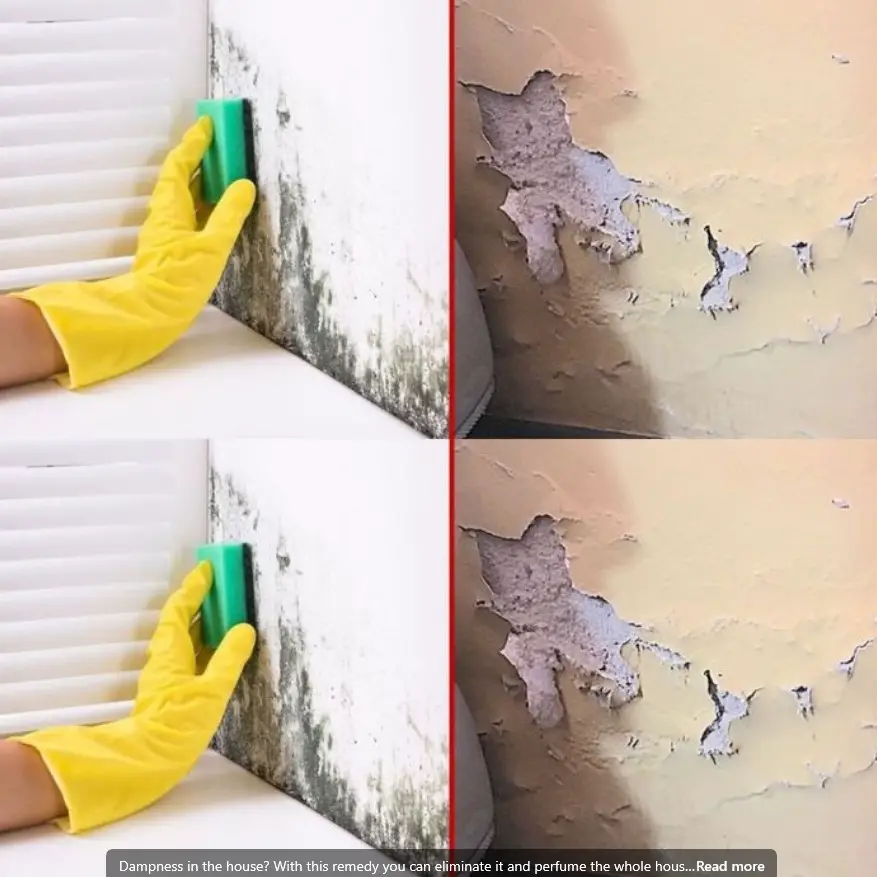
A damp, musty-smelling home can be uncomfortable and even unhealthy. Excess moisture in the air can lead to mold growth, unpleasant odors, and respiratory issues. Fortunately, there are effective and natural ways to eliminate dampness and introduce delightful fragrances into your living space.
🏠 Understanding Dampness in the Home
Dampness in the home is often caused by high humidity levels, poor ventilation, or water leaks. Common signs include condensation on windows, musty odors, and visible mold growth. If left unaddressed, dampness can damage furniture, walls, and flooring, and may lead to health problems such as allergies and asthma.
💧 Effective Methods to Eliminate Dampness
1. Increase Ventilation
Proper ventilation is crucial in reducing indoor humidity levels. Open windows and doors to allow fresh air to circulate, especially after activities that generate moisture, like cooking or showering. Using exhaust fans in bathrooms and kitchens can also help remove excess moisture from the air.The Scottish Sun
2. Utilize Dehumidifiers
Dehumidifiers are devices designed to remove moisture from the air. Placing a dehumidifier in damp areas such as basements or bathrooms can significantly reduce humidity levels and prevent mold growth. Some affordable options are available, such as reusable dehumidifier bags that can be placed near windowsills to absorb moisture. These bags can be reset in the microwave for continued use .The Scottish Sun
3. Absorb Moisture with Natural Materials
Certain natural materials are excellent at absorbing moisture from the air:The Scottish Sun+1The Sun+1
- Salt: Placing bowls of salt in damp areas can help absorb excess moisture.The Scottish Sun
- Cat Litter: Silica-based cat litter can be placed in containers to act as a natural dehumidifier.The Scottish Sun
- Baking Soda: Bowls of baking soda can help neutralize odors and absorb moisture .The Scottish Sun
4. Seal Cracks and Gaps
Inspect your home for any cracks or gaps around windows, doors, and walls. Sealing these openings with weatherstripping or caulk can prevent humid air from entering and reduce condensation.The Scottish Sun
🌸 Introducing Pleasant Scents into Your Home
Once you’ve addressed the dampness, it’s time to infuse your home with delightful fragrances. Here are some natural methods:
1. Simmer Natural Ingredients
Simmering a pot of water with natural ingredients can fill your home with a pleasant aroma:
- Citrus and Herbs: Combine slices of lemon or orange with sprigs of rosemary or thyme.
- Spices: Add cinnamon sticks, cloves, or vanilla extract for a warm scent.
- Flowers: Use lavender or jasmine for a floral fragrance.
2. DIY Room Sprays
Create your own room spray by mixing:
- 1 cup of waterLog in or sign up to view
- 1 tablespoon of baking soda
- 10-15 drops of your favorite essential oil (e.g., lavender, eucalyptus, or lemon)Better Homes & Gardens
Shake well before each use and spray around the room as needed.
3. Essential Oil Diffusers
Using an essential oil diffuser can disperse pleasant scents throughout your home. Choose oils known for their air-purifying properties, such as eucalyptus, tea tree, or lemon. These oils not only smell good but can also help eliminate airborne bacteria.
4. Scented Candles
Opt for candles made from natural waxes like soy or beeswax, which burn cleaner and are less likely to release harmful chemicals into the air. Choose scents that promote relaxation and freshness, such as lavender, chamomile, or citrus.
5. Indoor Plants
Certain houseplants can help purify the air and add a natural fragrance:
- Peace Lilies: Known for their air-purifying qualities.
- Jasmine: Offers a sweet, pleasant scent.
- Gardenias: Provide a strong, sweet aroma.
Incorporating these plants into your home can enhance both air quality and fragrance.
🧼 Additional Tips for a Fresh-Smelling Home
- Regular Cleaning: Dust and vacuum regularly to prevent the buildup of allergens and odors.
- Laundry: Ensure clothes and linens are thoroughly dried before storing them to prevent musty smells.
- Ventilate During Cooking: Use exhaust fans or open windows while cooking to remove cooking odors and moisture.
- Dry Clothes Outside: Whenever possible, dry clothes outdoors to prevent indoor humidity buildup.
By addressing dampness and introducing natural scents, you can create a healthier and more pleasant living environment. Implementing these strategies will not only improve air quality but also enhance the overall atmosphere of your home.



